Hana, who has studied at the Faculty of Humanities, went on her Erasmus study program to Klaipeda in Lithuania. What was her experience? Continue reading to find out more. | Erasmus Lithuania
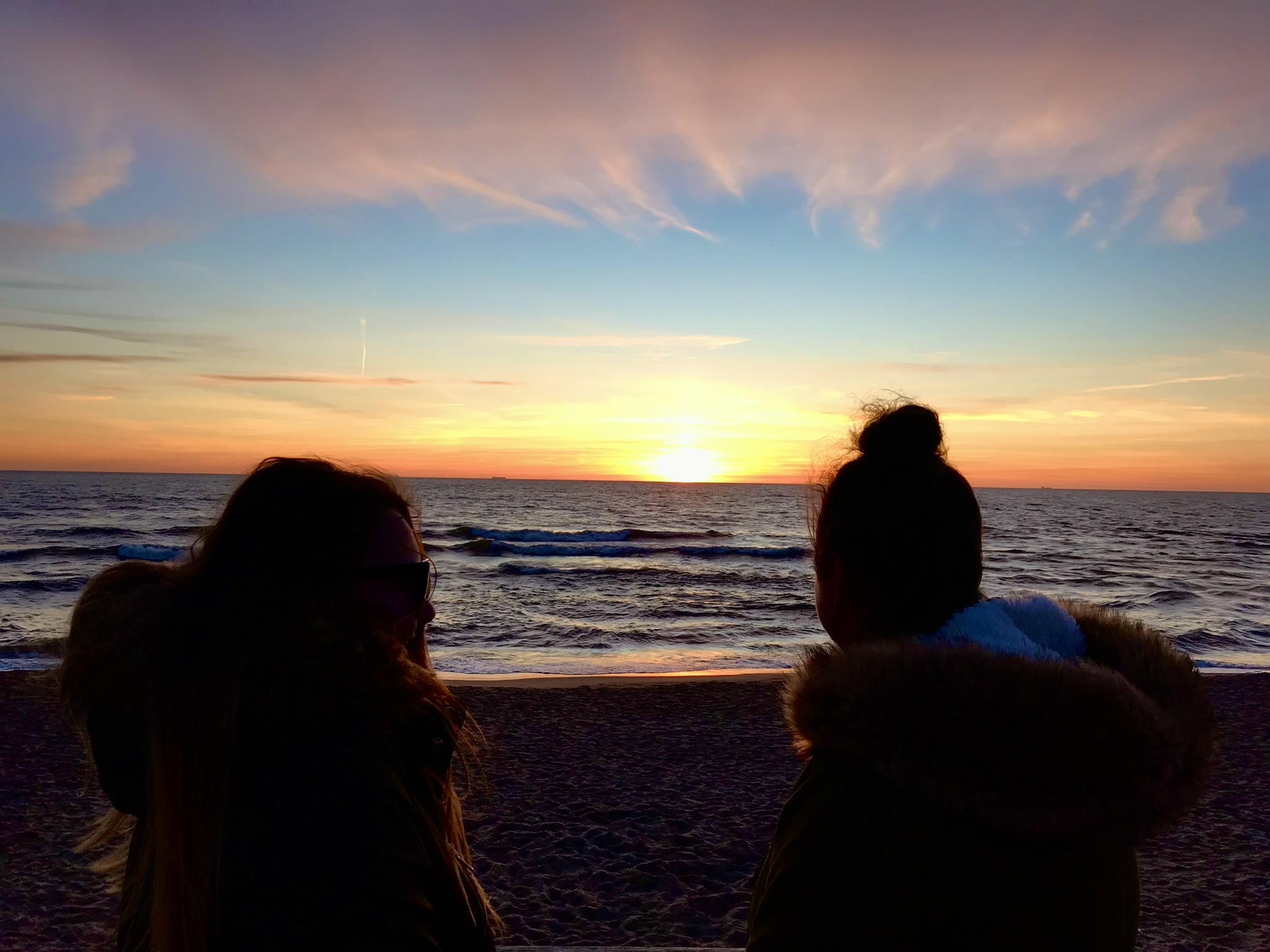
Why did you decide on Lithuania for your Erasmus?
This is the first question that everyone asks me when I told them that I am going to Lithuania for my Erasmus study *laughter*. I have made some criteria to help me decide where to go. I wanted to go to a country I have never been to before; a country that is not the typical destination for Erasmus stay; it is not as expensive as Scandinavian countries; a country I don’t know a lot about and also a country that uses a language I don’t speak at all to have more fun.
Lithuania is more north than Zlin. How did you handle the weather change?
To be honest I didn’t handle it very well at all *laughter*. I expected it to be colder than in the Czech Republic, however, it was much colder. Klaipeda is a seaside city, so we had to deal with a strong wind. Due to that, the temperature felt much lower, some days around -30 degrees Celsius. In such weather, you don’t even know what to wear. I was just putting more and more layers on myself till I was able to zip up my jacket. But the worst thing was the lack of sunshine. During the winter we haven’t seen the sun for like three weeks. That was kinda depressing. Now I understand why people up north drink that much *laughter*.
But the thing that surprised me was that at night the sky wasn’t dark. Instead, it was kinda pinkish. During spring the sunrise was really early, at like 4 AM, and sunset at 10-11 PM. Something I have to admit is that the best sunsets I have seen in my entire life were in Lithuania.
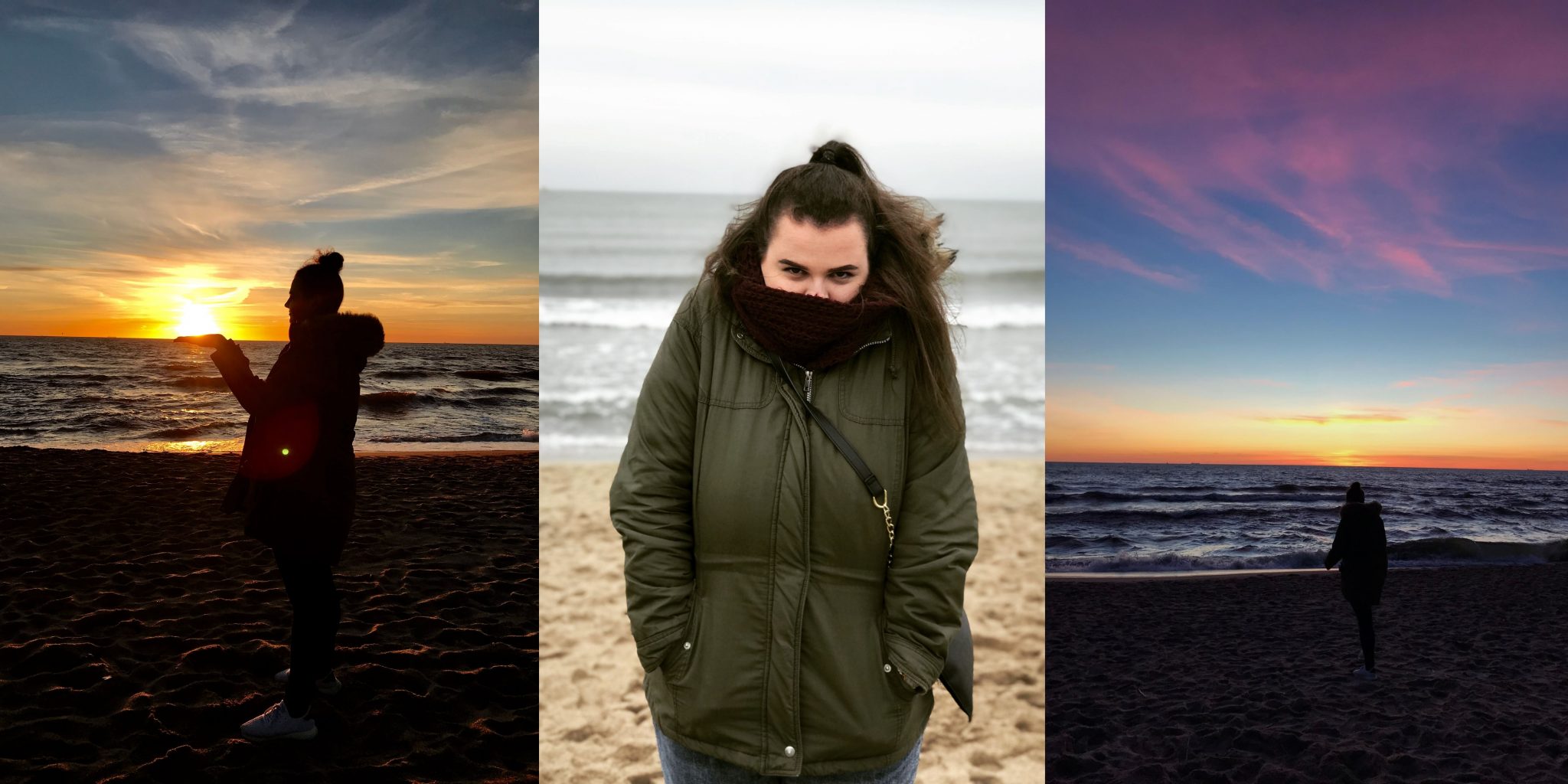
Were there any differences in the education system?
I felt like Alice in Wonderland if I am being honest. In comparison with the Faculty of Humanities, it was a turn of 180. Attendance wasn’t required in any subjects, most of the classes were only for one hour every two weeks. Basically, there were weeks when I was in school for just one hour in total. The study life was actually very easy. The approach of the teachers was different as they acknowledged the fact that we are Erasmus students so they didn’t want us to stay hours studying at the library. They gave us enough freedom to travel and spend time with other Erasmus students. However, we still had to meet the requirements to get the credits.
What was the most challenging thing about life in Lithuania?
The language barrier, I guess. In the beginning, it was fun but later it was getting more complicated. Many locals, even university employees, were not able to speak English, so we were forced to learn at least the basics of Lithuanian. However, in many situations, we had to fully rely on Google Translator. I remember that in the second half of my study stay I refused to use the translator anymore. It was bothering me a lot and I switched to communication with my body. Despite that, the first thing I learned in Lithuanian was to order a beer, to make my life at least a bit easier.
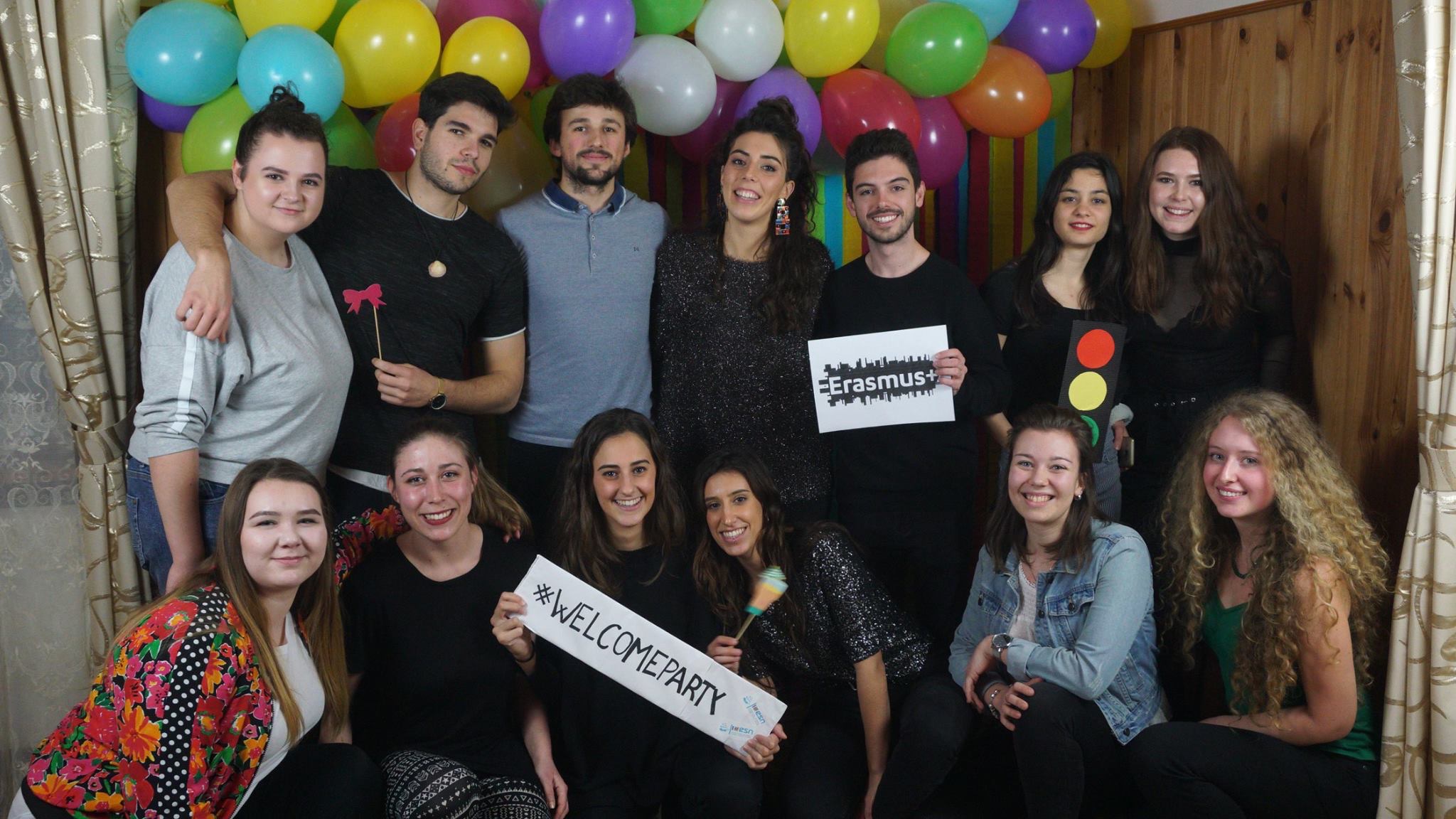
You have chosen Lithuania because it is not that expensive. Was it true?
I spent much more money than I expected, but that was my fault hahah. You could be able to live only from the EU grant money, but you would have to carefully watch your spendings. In general, the social life was kinda expensive, however, everywhere it is pricier than here. I couldn’t understand that they don’t have discounts for alcoholic beverages at all, and you cannot buy them anytime you want. On the other hand, the public transport was like 5 euros per month. And taxis were cheap as well. I recommend saving as much money as possible so you can use it for travelling.
When it comes to travelling, what other countries did you visit?
I went on a trip that was organized by ESN to Finland and Sweden. It was created by multiple ESN from Lithuania, Latvia, Estonia, and Finland. It was a cruise from Helsinki to Stockholm. This one was kinda a mess because there were over a thousand Erasmus students. All I can say is that in three days I have slept approximately six hours. Everyone must go on this trip! But bear in mind that the prices can double or even triple, especially on the ship. On top of that, in order to buy some alcohol, you have to be the first one in the duty-free zone before it’s completely sold out.
Other than that, we visited Riga, the capital of Latvia for a couple of days. We explored the city and of course the nightlife as well.
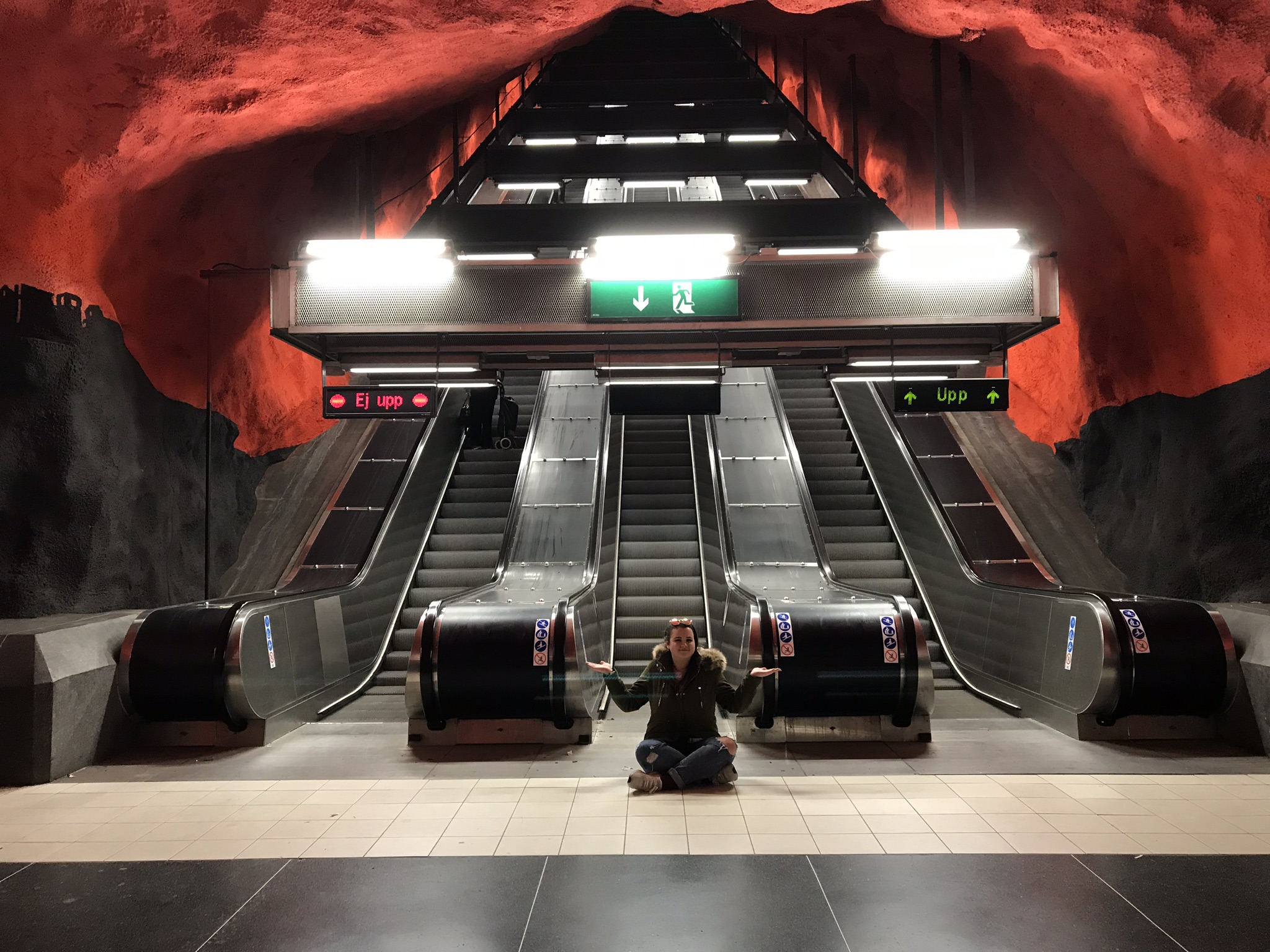
What is your favourite memory of Erasmus?
I have so many amazing memories, so I don’t think I can choose only one. I can narrow it to my top 3. Let’s start with the days which we spent on the beach and end them up by watching the most beautiful sunsets. The next one is a sort of a tradition that we have created. After every night out when we came back to our dorm, we would meet up in the kitchen and cook a meal together. We didn’t care if it was at 3 AM or 7 AM. And the last one is probably those nights that we have decided to stay up and just talk for hours until we saw the sunrise. It sounds very simple and boring but those are the moments that I miss the most.
What was your biggest fail?
Probably the time when I stretched ligaments in my ankle. That was kinda unfortunate. The worst part was the doctors at the hospital because they couldn’t speak English. At that time, I was in my resignation phase when it came to using the translator. I’ve just put my foot on their table, pointed at my ankle, and said “auch auch here”. Sometimes you just have to improvise.
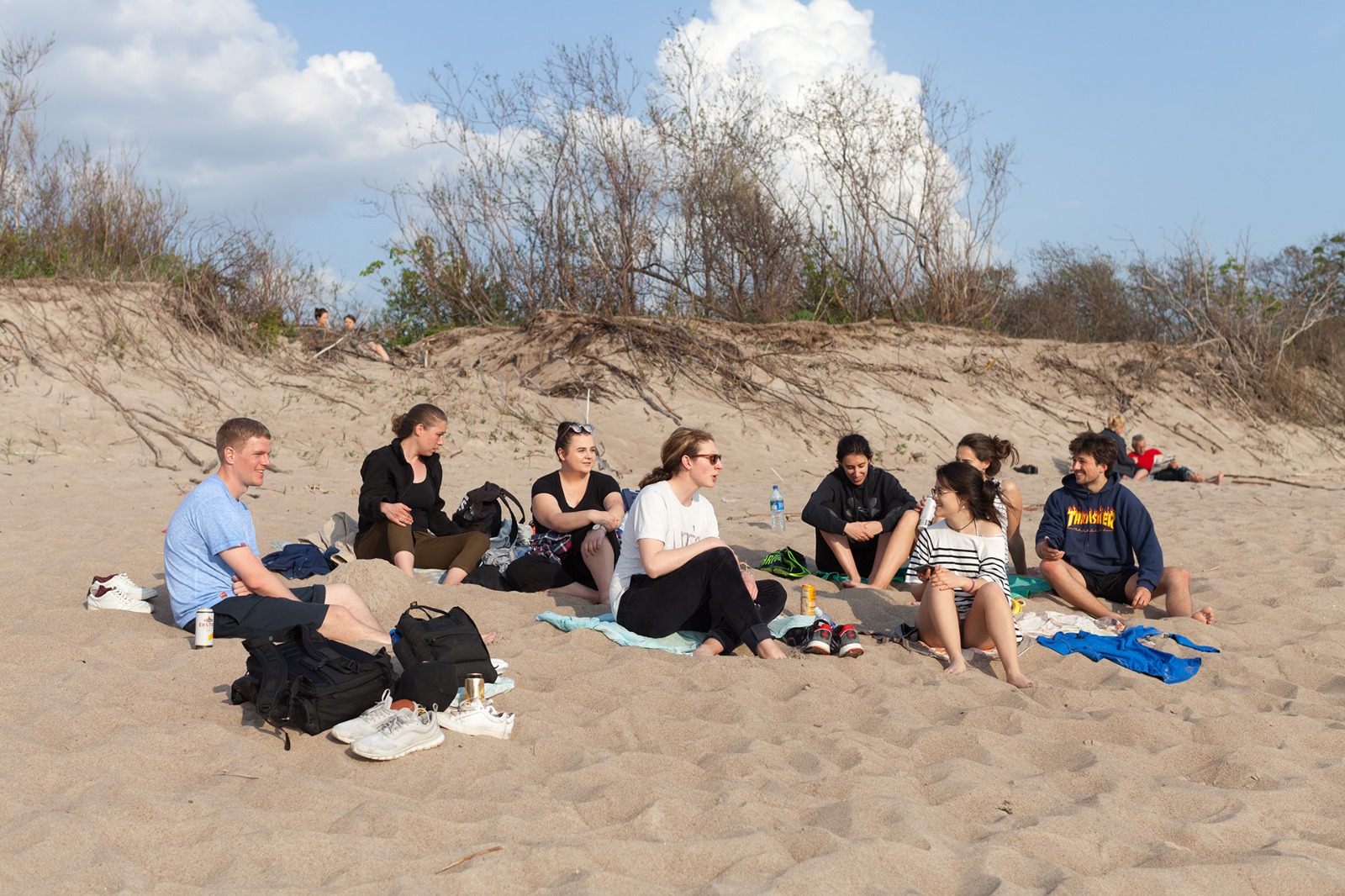
What was the strangest experience you had?
I think this one is the strangest but also the nicest I have experienced in my life. As I have said before, I injured my ankle, so I had to slow down for a few days. I spent most of the time sitting in the kitchen with a bag of frozen vegetables on my foot. People were coming to me to entertain me for a little bit because I was pretty mad that I couldn’t do anything. One evening a good friend of mine from Spain came for a chat. As you usually do, I’ve asked him about his day. The first sentence he said was “I’ve cloned you”. After many confusing questions from my side, he told me that yesterday, after I seemed very sad about my injury, he wanted to cheer me up, so he took one of my hair, brought it to the lab where he had a class, and cloned my DNA. Logically, I was in complete shock. He showed me ‘myself’, or to be correct, my DNA strand under the microscope. Then he said, he added his own DNA to the same Pietri dish as mine and froze it as a sign of our friendship. Probably the Pietri dish is still in the freezer of Klaipeda University.
Do you have any negative experiences?
Straight from the beginning, I noticed that the local students and locals, in general, were distancing themselves from us, but I didn’t think much about it. However, at the end of Erasmus when I started to get more tanned, I would experience a sort of racist behaviour from locals. And it was happening not only to me but to my friends too because based on the colour of our skin, bouncers were refusing to let us enter into bars and clubs. I don’t want to accuse all Lithuanians, but it was happening to us quite often.
Do you have any advice for anyone who is thinking about going on Erasmus?
Don’t think about it a lot and just apply and go. For me, it was one of the best decisions I have made in my life. You’ll make amazing memories that will stay with you for the rest of your life and meet so many new people. You won’t regret it.
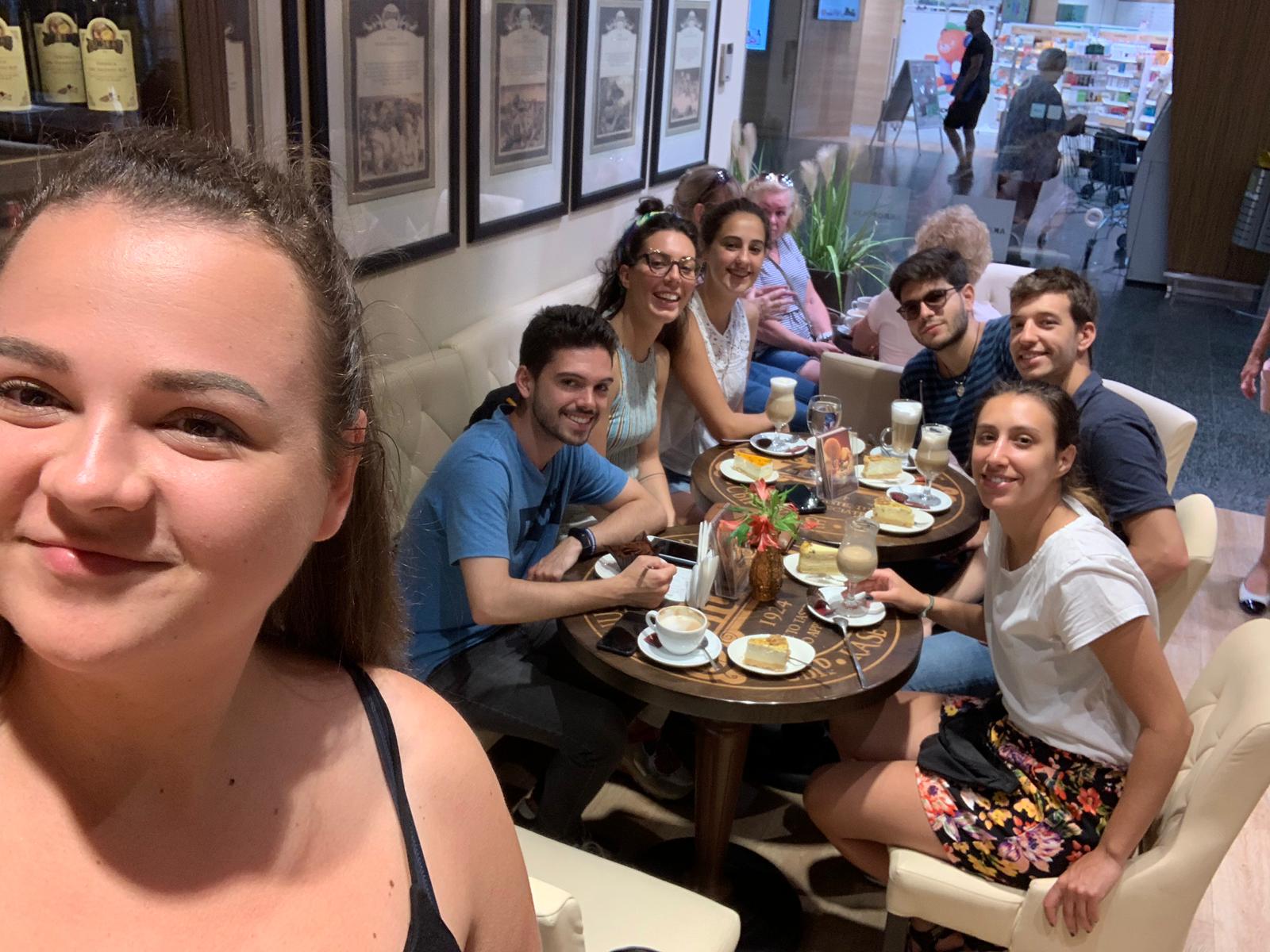
Don’t miss out on anything and follow us on our Instagram here. | Erasmus Lithuania
Do you want to read more articles in English? Continue here. | Erasmus Lithuania

